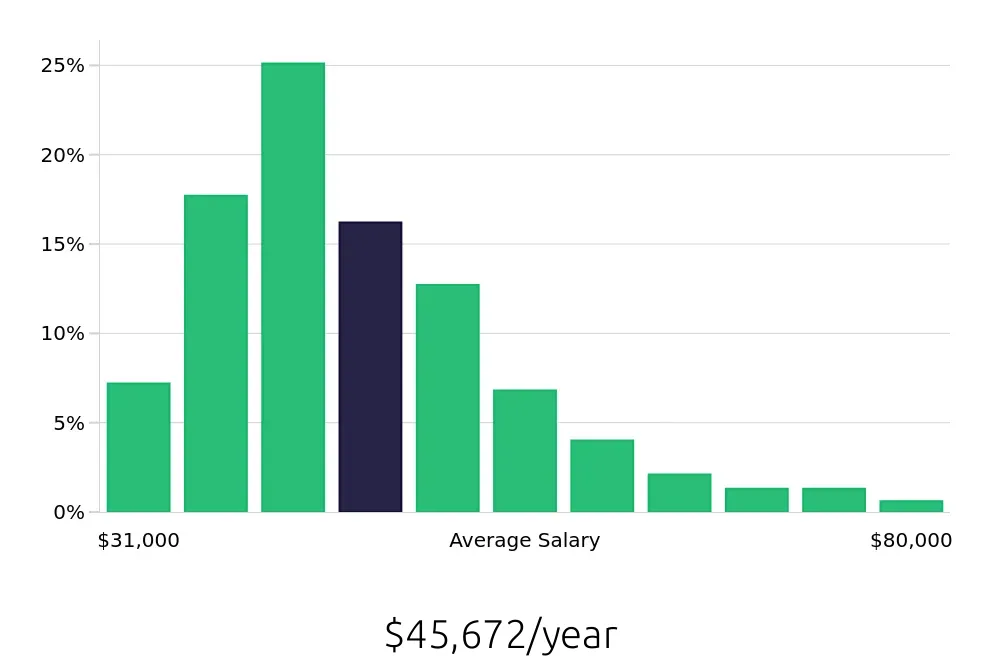Position
Overview
A painter works on various surfaces to create decorative and protective coatings. This role often requires attention to detail and an eye for color and texture. Painters might work on buildings, walls, furniture, or even artwork. They prepare surfaces by cleaning and sanding, apply primer, and then use paint to achieve the desired look. They often need to blend colors and apply multiple coats for a smooth finish.
To succeed, painters must follow safety protocols when working at heights or handling chemicals. They need to understand different painting techniques and tools. Painters work closely with contractors, architects, and clients to ensure the final result meets expectations. They may work indoors or outdoors, and sometimes even in challenging weather conditions. This job demands a steady hand, a creative mind, and the ability to follow design specifications accurately.
Becoming a painter is an achievable goal for those with a passion for art and design. This career offers the chance to create visually appealing spaces and work in various environments. It is essential to follow a clear path to succeed in this field. Here is a guide for professional job seekers to understand the process of becoming a painter.
To start a career as a painter, consider these steps:
The journey to becoming a skilled painter involves various steps that add up over time. Many people start by taking classes or getting an apprenticeship. These programs can last from a few months to a couple of years. The duration depends on the depth of training and the specific skills being learned.
An apprenticeship often lasts about 2 to 4 years. During this time, the individual works under a seasoned painter. This allows for hands-on experience and learning of various techniques. Some painters choose to further their education with specialized courses or certifications. These can take an additional 6 months to a year. With practice and dedication, the individual can develop the skills needed for a successful career in painting.
We are seeking a skilled Painter to join our team. The ideal candidate will have a keen eye for detail and a passion for creating beautiful, high-quality finishes. This role involves working on various projects, including residential, commercial, and industrial settings.
Responsibilities:
Qualifications
Painting offers a rewarding career path for those with an eye for detail and a passion for creating art. It can be a freelance venture or a job in various industries, from residential homes to commercial spaces. Painters bring color and life to environments, making spaces more inviting and visually appealing. This role allows for creativity and the chance to work on diverse projects.
However, a career as a painter has its own set of advantages and challenges. Understanding these can help in making an informed decision about pursuing this path. On the positive side, painters can enjoy the satisfaction of seeing their work come to life. The job also offers flexibility, as many painters can choose their own hours and projects. The skills acquired can be applied to various types of artwork, allowing for versatility in the field.
Still, there are factors to consider. Painters often work in physically demanding conditions, which can lead to fatigue. The job may require long hours, especially during peak seasons. Additionally, income can vary widely, depending on the type of work and location. Being self-employed means managing finances and marketing, which can be challenging for some.
Below are some pros and cons of a painting career:
Job seekers interested in painting have a promising outlook. The U.S. Bureau of Labor Statistics (BLS) reports an average of 28,700 job openings for painters each year. This steady demand reflects the need for skilled painting professionals in various sectors, including construction and maintenance. With ongoing projects in residential and commercial buildings, the job market for painters remains strong.
The BLS also forecasts a 6.5% growth in job openings from 2022 to 2032, highlighting a positive trend for aspiring painters. This growth can be attributed to the continuous need for renovations and new construction projects. The construction industry's expansion ensures that skilled painters will find ample opportunities. With this growth, job seekers can look forward to a stable and expanding field.
Painters can expect a competitive compensation package. According to the BLS, the average national annual salary stands at $107,780, with an hourly rate of $51.82. These figures underscore the value placed on skilled painting professionals. Higher wages reflect the importance of quality work in the industry. Job seekers can anticipate both financial stability and career growth in this rewarding field.
